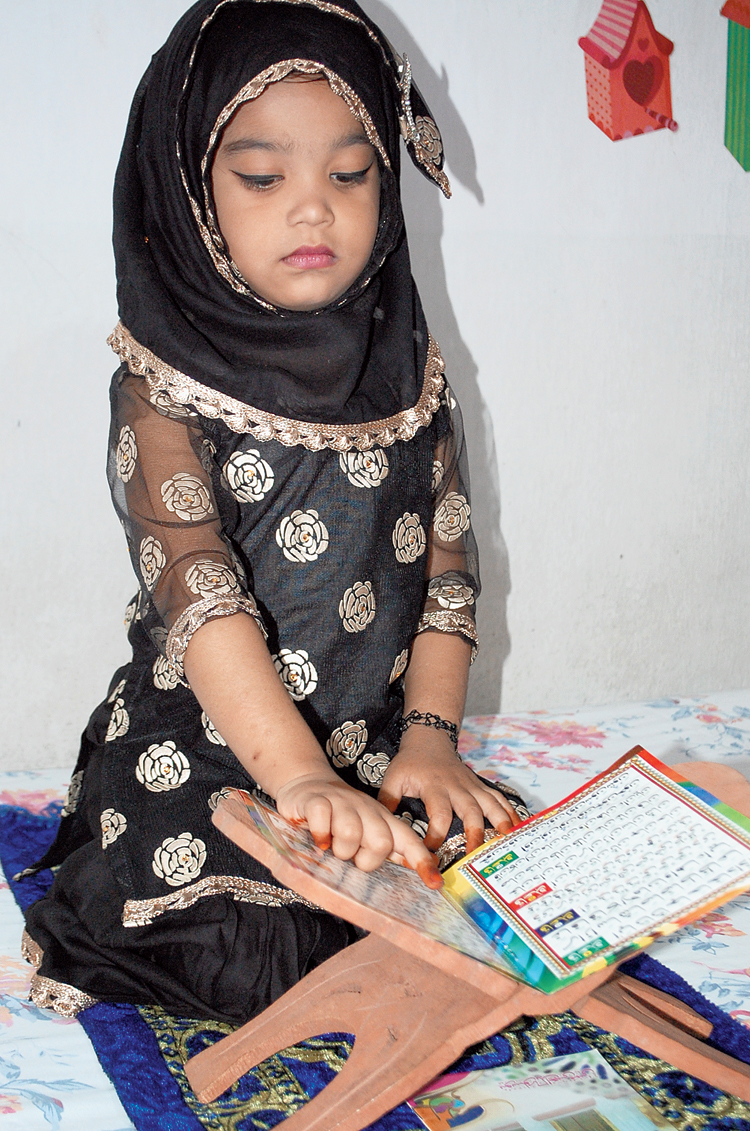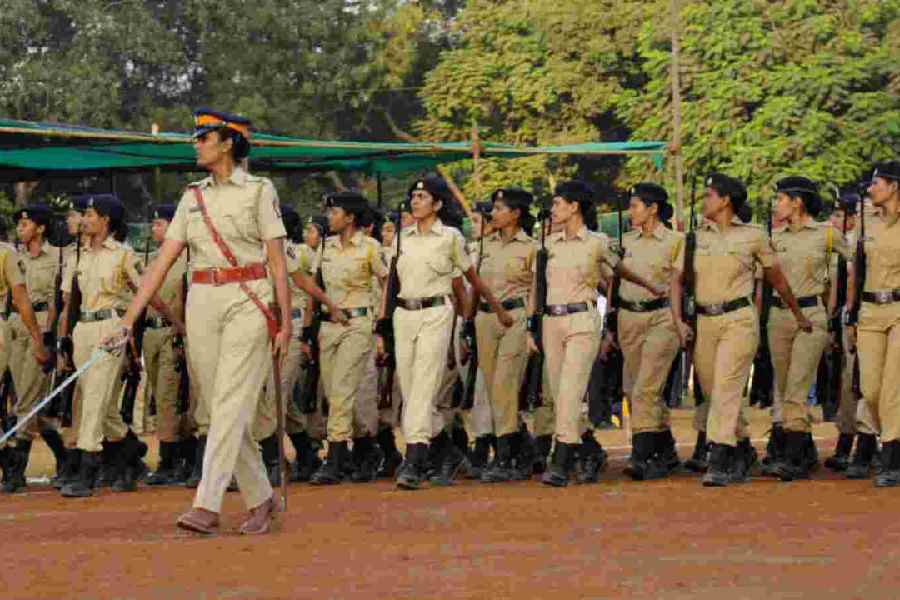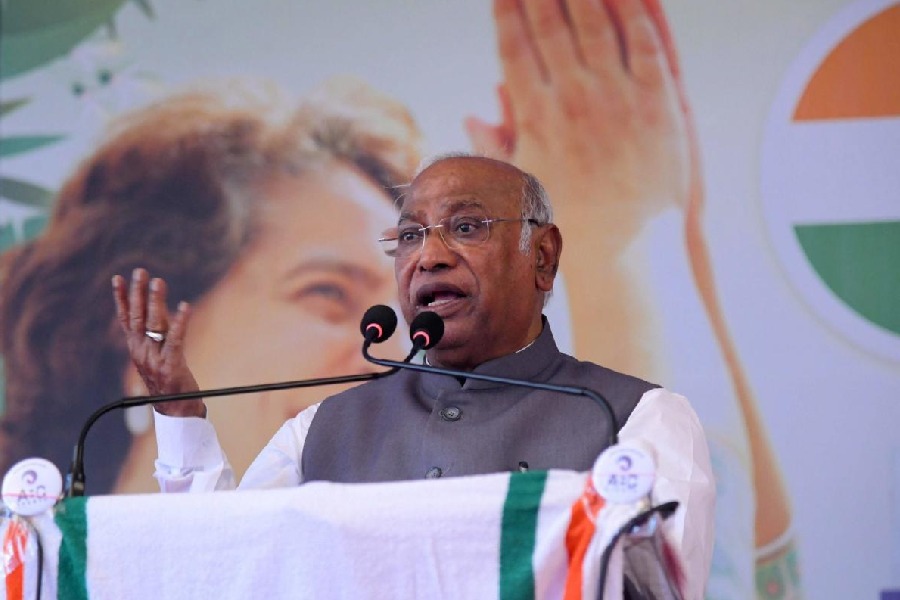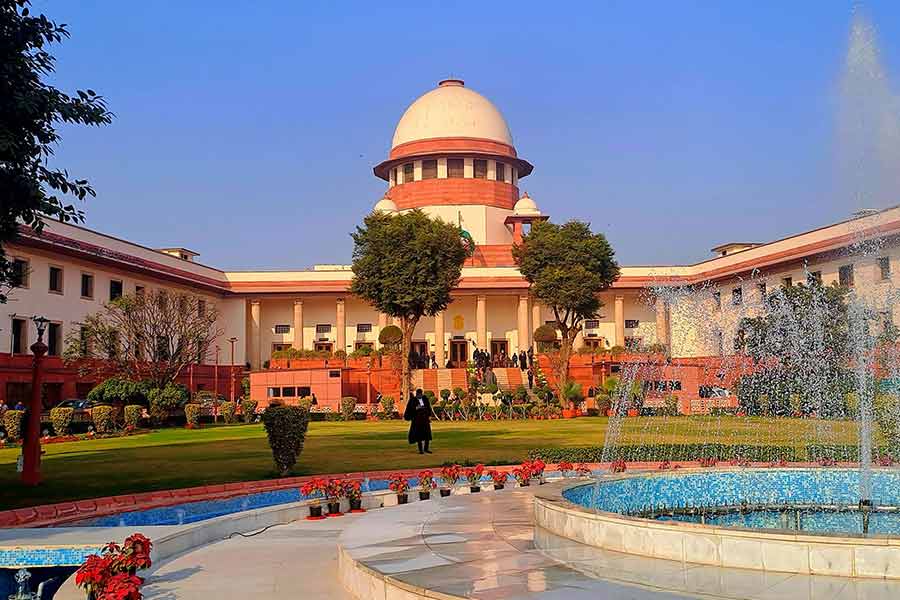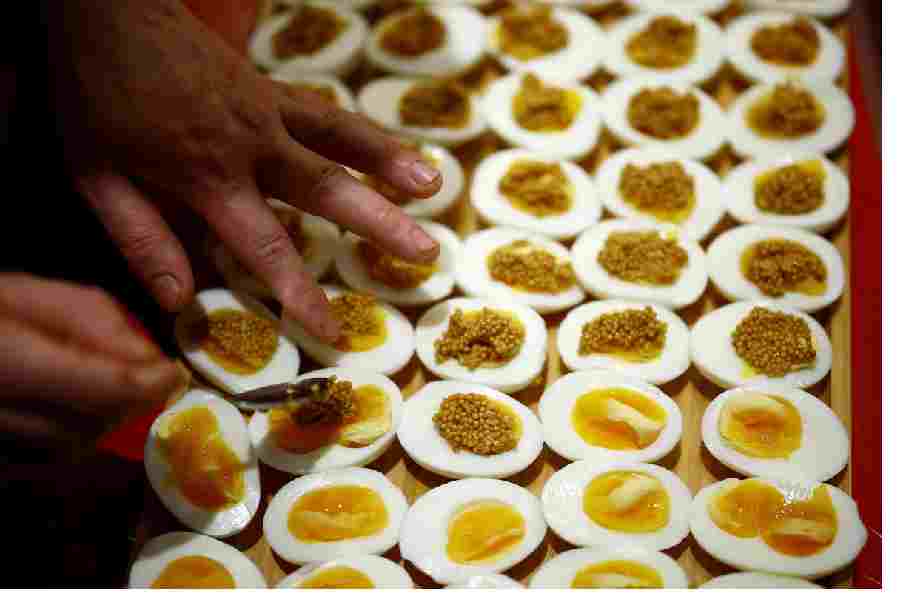Transform or perish. The Covid-19 pandemic, which has changed the world, has forced ordinary people to re-skill themselves to survive.
Sellers of goat meat and golgappas, which have little demand amid the lockdown, are selling wares that have takers. Autorickshaw drivers, rendered jobless during lockdown, have switched over to selling fruits and vegetables.
In Ranchi, owner of the well-known Paradise Mutton in Bariatu, Ghulam Sarwar, said he had no way out but to start selling watermelons.
Speaking to The Telegraph, Sarwar said: “We usually bring goats from Nagar Utari in Garhwa. Due to the lockdown bringing goats has become impossible. Apart from this, demand for mutton has also reduced. So instead of sitting idle without earnings, I decided to sell watermelons.”
On his new earnings versus his old, Sarwar laughed. “There is no comparison. I used to sell at least 100 kilos of mutton at the rate of Rs 550 per kilo a day. Now I can hardly sell 50 kilos of watermelon at the rate of Rs 20 per kilo,” Sarwar added.
Asked why he chose this business, Sarwar said he had to keep himself and his employees engaged.
“I employ three people. At least now they have something to do. There is an old saying that something is better than nothing,” Sarwar explained.
Manoj Mahto, a golgappa vendor with his residence at Vidya Nagar, agreed with Sarwar. “I now sell green vegetables on my hand push cart. Demand for golgappa has reduced to almost zero for fear of infection, so I decided to sell vegetables. Sure, my earnings have gone down, but at least I get enough to survive.”
Ranchi resident Abhay Mahto, an insurance agent in Vidya Nagar, said he knew a trash dealer, Kishore Saw, who “now sells vegetables and happiness”. “He has created possibility in the face of challenge, it’s inspiring,” Mahto said.
In Jamshedpur, about 10 percent of over 25,000 autorickshaw drivers have switched over to other professions.
One of the auto-rickshaw drivers is Istiaque Ahmed who has started selling green vegetables at Mango since the past fortnight.
“I sat idle at home from March 25, the day the lockdown came into effect. But when the lockdown extension was announced earlier this month, I immediately went over to Sakchi sabji mandi and lifted a stock of green vegetables that I started selling near the Mango bridge,” said Istiaque, a father of three children and Azadnagar resident in Mango. “I used to earn on an average Rs 400 a day by driving the autorickshaw. Selling vegetables does not give me that kind of income but at least my wife and children won’t starve,” he added, thanking the administration for allowing the sale of vegetables.
An autorickshaw driver who took to selling fruits during lockdown, Bhagwan Mahto of Ghorabandha in Telco, said he had also sat at home waiting for the first phase of lockdown to end on April 14. When it was extended till May 3, he decided to start selling fruits. “I withdrew Rs 15,000 from my savings and bought a stock of fruits from Parsudih fruits godown,” Mahto, the breadwinner of a family of five said.
He and Istiaque added that many autorickshaw drivers like them had started selling fish, potatoes, onions and lemons. “If we don’t earn, our families starve,” Istiaque said.
Ansari also insisted on social distancing among the people he distributed food to. “We all need to be safe from the novel coronavirus, which is why social distancing is important,” Ansari said. The holy month of Ramzan falls on the ninth month of the Islamic lunar calendar, and starts with the sighting of the crescent moon. Muslims across the world fast from dawn to dusk during this time. After sunset, they break their fast which is known as Iftar.
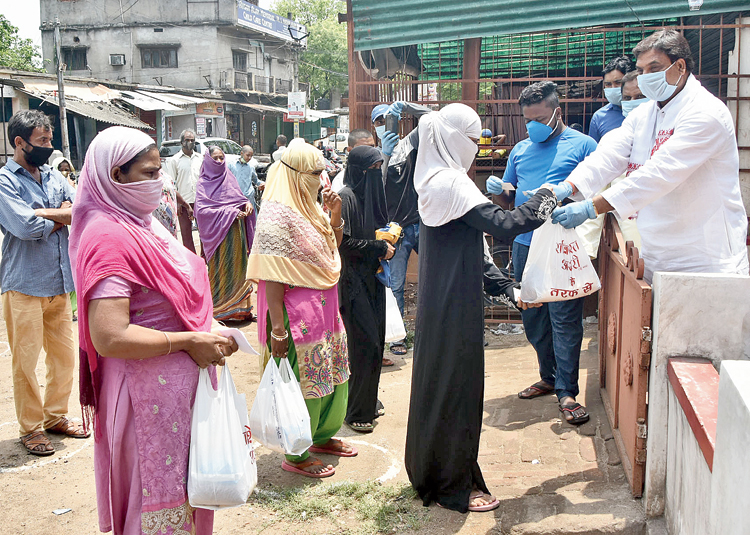
Rashid Raja Ansari, a businessman and social worker also from Wasseypur, distributes food items among the needy for Iftar in front of his residence

